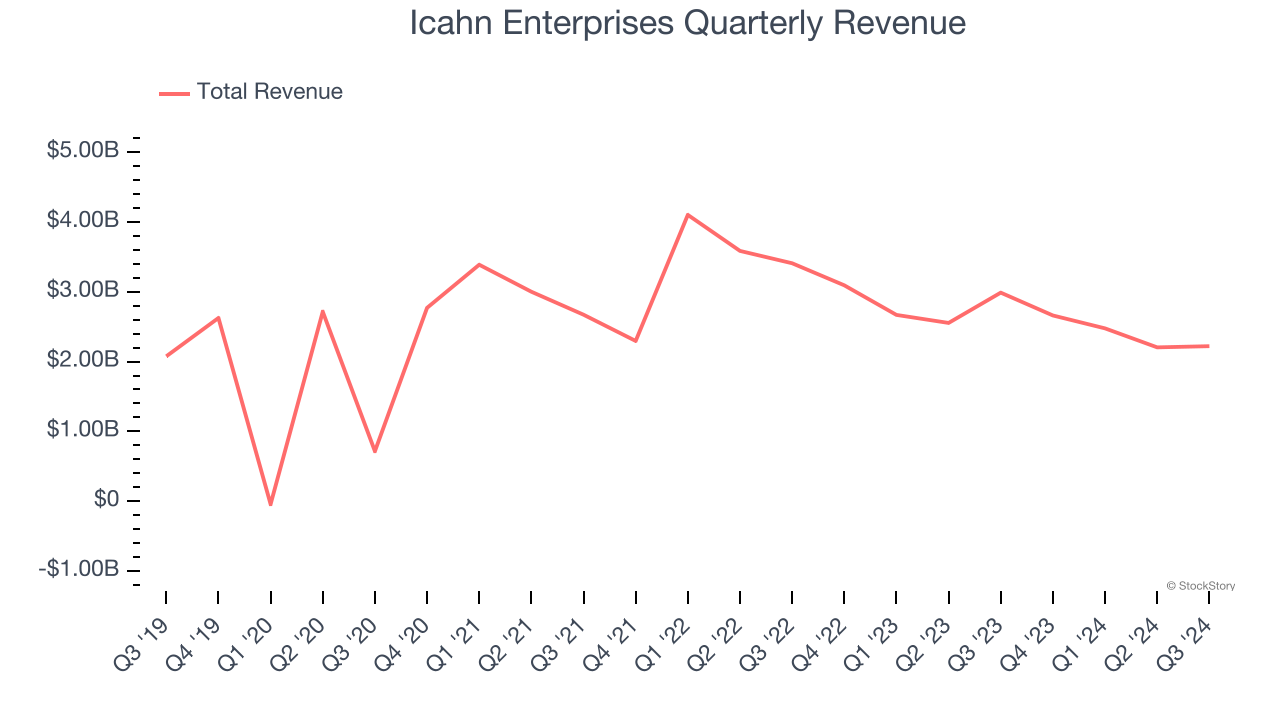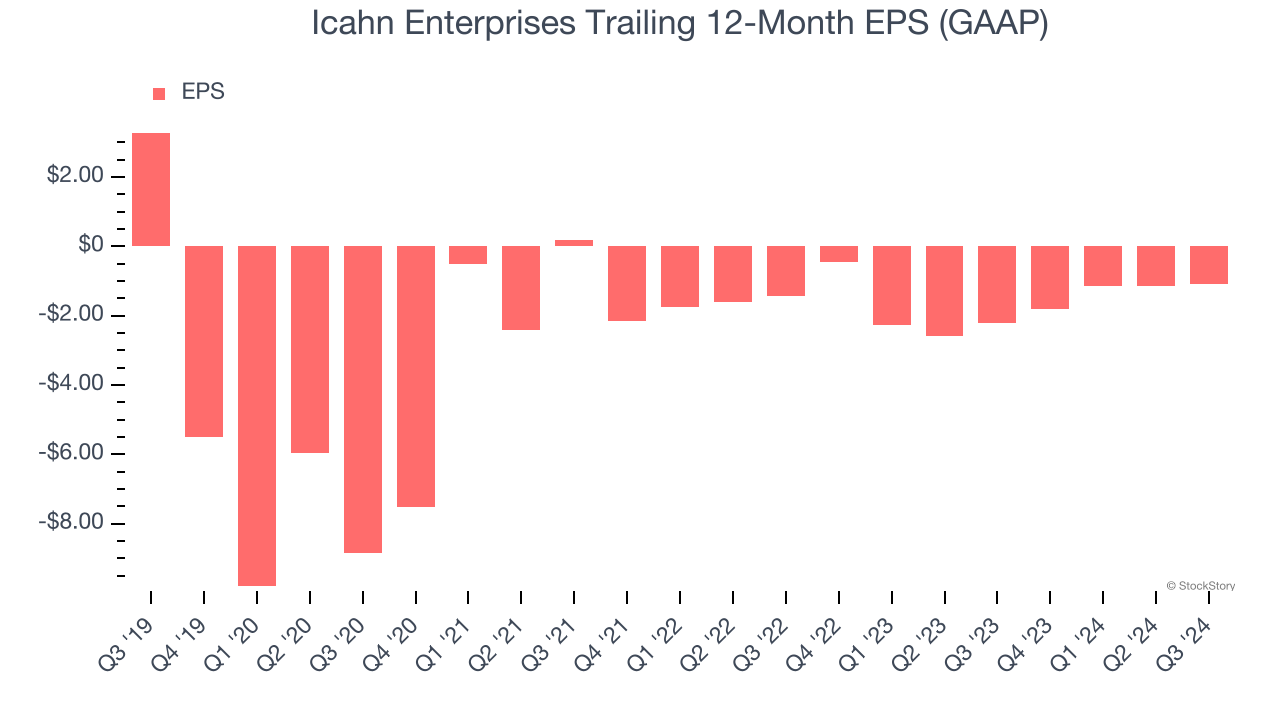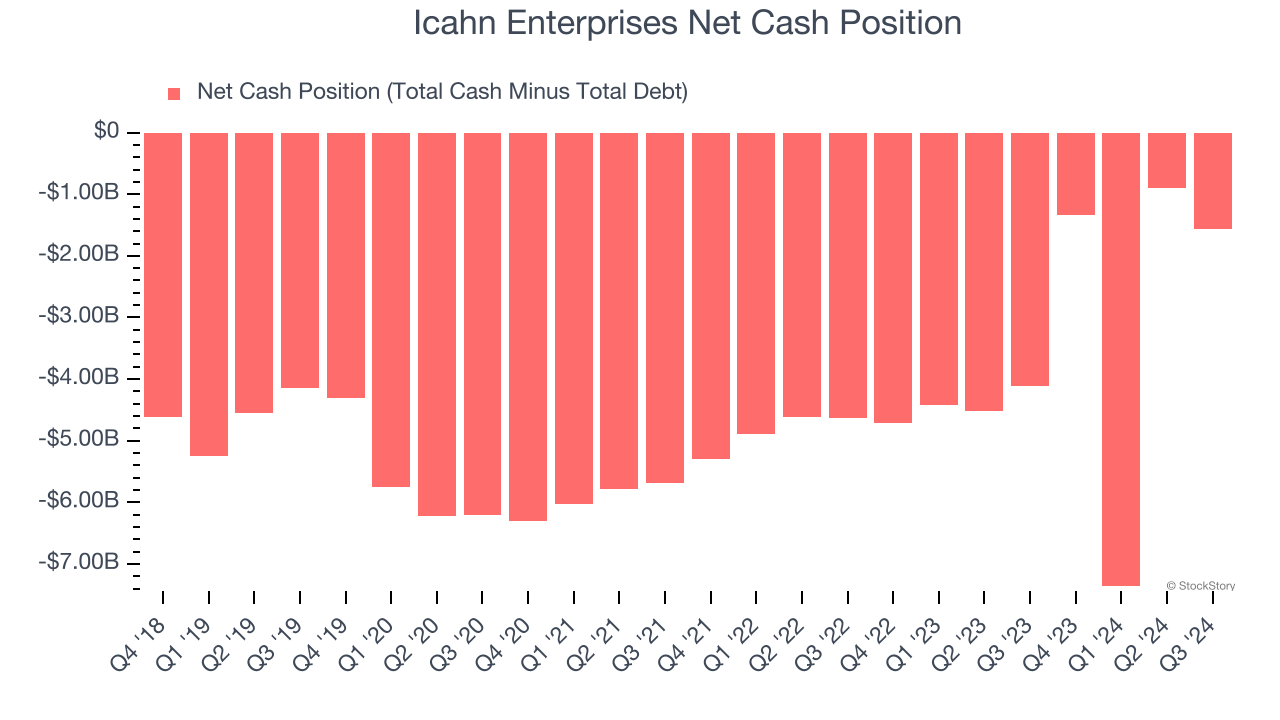
The past six months haven’t been great for Icahn Enterprises. It just made a new 52-week low of $9.10, and shareholders have lost 44.8% of their capital. This was partly due to its softer quarterly results and may have investors wondering how to approach the situation.
Is now the time to buy Icahn Enterprises, or should you be careful about including it in your portfolio? Get the full breakdown from our expert analysts, it’s free.Even though the stock has become cheaper, we're sitting this one out for now. Here are three reasons why IEP doesn't excite us and a stock we'd rather own.
Why Do We Think Icahn Enterprises Will Underperform?
Founded in 1987, Icahn Enterprises (NASDAQ: IEP) is a diversified holding company primarily engaged in investment and asset management across various sectors.
1. Long-Term Revenue Growth Disappoints
A company’s long-term performance is an indicator of its overall quality. While any business can experience short-term success, top-performing ones enjoy sustained growth for years. Unfortunately, Icahn Enterprises’s 1.4% annualized revenue growth over the last five years was weak. This was below our standards. 
2. EPS Trending Down
Analyzing the long-term change in earnings per share (EPS) shows whether a company's incremental sales were profitable – for example, revenue could be inflated through excessive spending on advertising and promotions.
Sadly for Icahn Enterprises, its EPS declined by 18.5% annually over the last five years while its revenue grew by 1.4%. This tells us the company became less profitable on a per-share basis as it expanded.

3. High Debt Levels Increase Risk
As long-term investors, the risk we care about most is the permanent loss of capital, which can happen when a company goes bankrupt or raises money from a disadvantaged position. This is separate from short-term stock price volatility, something we are much less bothered by.
Icahn Enterprises’s $6.45 billion of debt exceeds the $4.88 billion of cash on its balance sheet. Furthermore, its 9× net-debt-to-EBITDA ratio (based on its EBITDA of $171 million over the last 12 months) shows the company is overleveraged.

At this level of debt, incremental borrowing becomes increasingly expensive and credit agencies could downgrade the company’s rating if profitability falls. Icahn Enterprises could also be backed into a corner if the market turns unexpectedly – a situation we seek to avoid as investors in high-quality companies.
We hope Icahn Enterprises can improve its balance sheet and remain cautious until it increases its profitability or pays down its debt.
Final Judgment
Icahn Enterprises falls short of our quality standards. Following the recent decline, the stock trades at 11.8× forward price-to-earnings (or $9.10 per share). This valuation is reasonable, but the company’s shaky fundamentals present too much downside risk. There are superior stocks to buy right now. We’d recommend looking at Wingstop, a fast-growing restaurant franchise with an A+ ranch dressing sauce.
Stocks We Would Buy Instead of Icahn Enterprises
The elections are now behind us. With rates dropping and inflation cooling, many analysts expect a breakout market to cap off the year - and we’re zeroing in on the stocks that could benefit immensely.
Take advantage of the rebound by checking out our Top 6 Stocks for this week. This is a curated list of our High Quality stocks that have generated a market-beating return of 175% over the last five years.
Stocks that made our list in 2019 include now familiar names such as Nvidia (+2,691% between September 2019 and September 2024) as well as under-the-radar businesses like United Rentals (+550% five-year return). Find your next big winner with StockStory today for free.
